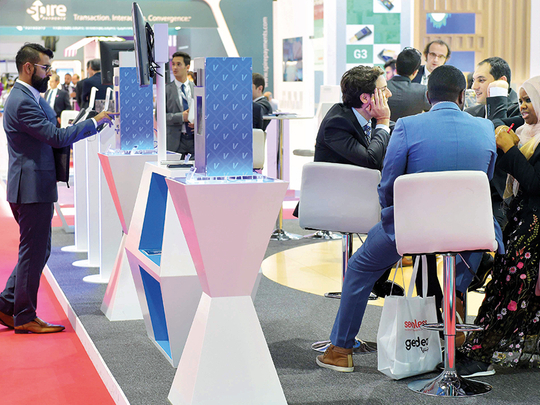
Dubai: The rapidly changing landscape of e-Commerce in the UAE has brought to light the role of the government as both an enabler and a regulator, according to experts at yesterday’s Seamless event in Dubai.
Expected to grow to $20 billion (Dh73.4 billion) across the Gulf by 2020, the online shopping market has given birth to a number of companies in recent years, from the $1 billion Noon to a slew of digital payments processors.
From this growth, two significant trends have emerged in the UAE, according to Sirish Kumar, co-founder and CEO of Telr.
“One of these trends is the role of the government,” Kumar told Gulf News in an interview on Sunday at Seamless, a payments technology, e-Commerce, and retail event.
A common trend in emerging markets, Kumar said that governments were acting as both regulators, as well as enablers.
“This a very positive thing. It is accelerating the pace of cashless transitions,” he said.
What’s more is that state-owned businesses, and semi-government entities, are living up to their promises.
“Government businesses are walking the talk,” he said, adding that overall, government involvement was a “critical trend that has been underestimated.”
Kumar said that he expected more regulations to be introduced soon, as the government acted to clean up what is still quite a chaotic industry.
Stringent standards
“Anti-fraud is becoming a much bigger subject,” he said.
As any sector grows, it invariably seeks to establish more stringent standards, which Kumar said would be good for the overall health of the market.
“It will mean more players in the market to contribute to innovation. Our industry is too nascent to talk about competition,” he said.
This year’s Seamless saw a number of announcements that would seem to reflect an innovative industry in good health.
Digital security provider Gemalto and biometric technology company Zwipe have partnered with areeba, a financial and payment technology company in the Middle East and Africa, to pilot Visa’s first battery-less dual interface biometric payment card in the region.
Also announced on the first day of the event was DubaiStore, a local online marketplace intended to cater to home-based businesses (e-traders) and small and medium enterprises (SMEs).
Despite the introduction of new technologies, several industry experts said that a lack of understanding was acting as a barrier to adoption.
According to Alain Kaddoum, general manager at Swisslog Middle East, one of the biggest challenges of introducing new technology into e-Commerce was trying to explain its benefits to people.
“People always ask why they should invest in warehouse automation when they can simply employ cheap manpower,” Kaddoum said.
“The customers aren’t familiar,” he added.












